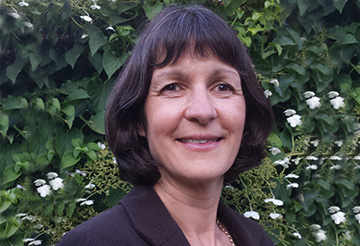About
Dr Hannah Bateman has worked substantively in the NHS for over 16 years and as a consultant child and adolescent psychiatrist since 2013. She currently works in the neurodevelopmental and learning disability team in East London NHS Trust. Her role includes clinical, managerial, and service development responsibilities.
Areas Dr Bateman covers include:
- Anxiety
- Low mood/depression
- Obsessive compulsive disorder (OCD)
- Behavioural difficulties
- Tic (movement) disorders/Tourette’s syndrome
- Autism spectrum condition (ASC)
- Attention deficit hyperactivity disorder (ADHD)
- Intellectual disability and associated emotional, behavioural and mental health issues
- Liaison/visits with schools/colleges and support with EHCP documentation
- Liaison with social care regarding disabilities, to advocate for a child’s needs
This is not an exhaustive list; please enquire about support for other specific difficulties and specialist assessments offered.
Specialist assessments
Dr Bateman's specialist area is the assessment and management of neurodevelopmental conditions such as autism and ADHD, including those with intellectual disabilities. She offers comprehensive, specialist neurodevelopmental assessments using gold standard tools, followed by a post diagnostic package of care including psycho-education and advice, medicine prescribing if appropriate and recommendations regarding psychological treatments as appropriate.
Her clinical assessment reports provide a profile of the young person alongside any diagnoses that can follow the child into their educational and social settings, improving access to appropriate support. During the assessment, other mental health issues may come to light such as anxiety, low mood, tics and obsessional behaviours. She can offer treatments for these difficulties as needed.
Specialist assessments: may be recommended following initial assessment if indicated.
ASC assessments involve the use of the Autism Diagnostic Observation Schedule (ADOS) and 3Di computerised autism parent questionnaire in addition to gathering information from schools/colleges. Cognitive assessment* may be indicated/recommended in addition to the autism assessment.
ADHD assessment involves the use of Connor’s ADHD questionnaires and a detailed history from parents and schools/colleges. Cognitive assessment* may also be indicated/recommended.
School observations can also be carried out if indicated.
*Cognitive assessment would be carried out by another clinician, to whom she can refer to. Charged separately.
Training
Dr Bateman studied Medicine at Manchester University and gained her Batchelor of Medicine degree and Bachelor of Surgery MBChB in 1997. Having worked for several years in Manchester, she worked in Australia for three years in A&E, paediatrics, rural medicine and psychiatry. On her return to the UK, Dr Bateman completed seven years of psychiatry and specialist higher child and adolescent psychiatry training on the Great Ormond Street/Royal London scheme and gained membership of the Royal College of Psychiatrists.

